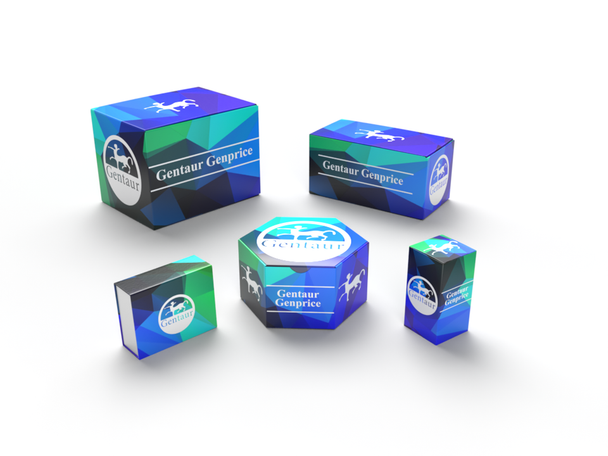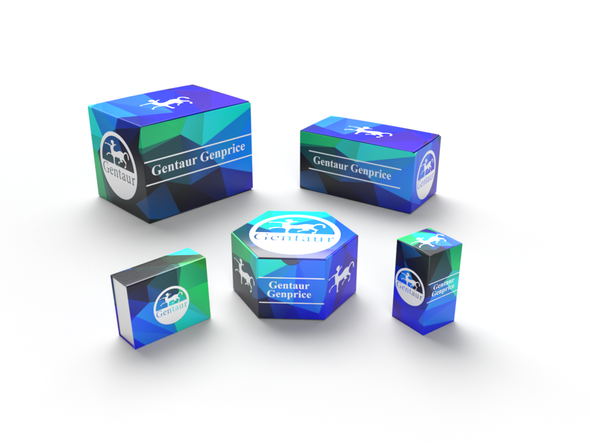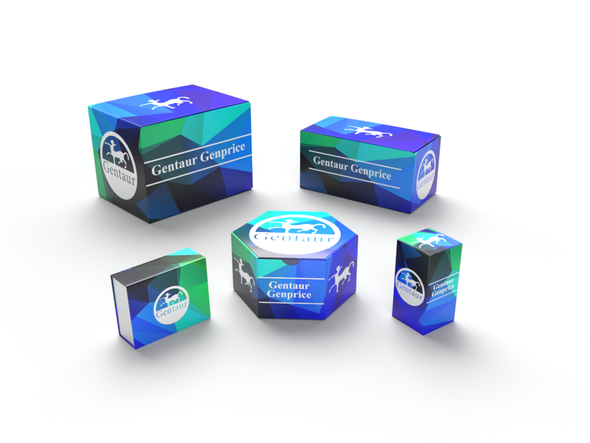Description
Mouse Anti-Human BMP-5 Antibody | 101-M236 | Gentaur UK, US & Europe Distribution
Species: Anti-Human
Host / biotech: Mouse
Comment: N/A
Label: N/A
Clone / Antibody feature: (#9G27)
Subcategory: Monoclonal Antibody
Category: Antibody
Synonyms: BMP5
Isotype: IgG2
Application: WB
Detection Range: N/A
Species Reactivity/Cross reactivity: Human
Antigen: recmombinant human BMP-5
Description: Bone Morphogenetic Protein5 (BMP5) is one of at least 15 structurally and functionally related BMPs which are members of the transforming growth factor β (TGFβ) superfamily. BMP5 is synthesized as a 454 amino acid (aa) precursor protein that is cleaved at the dibasic cleavage site (RxxR) to release the 20 kDa Cterminal mature protein. Mature BMP5 contains seven conserved cysteine residues involved in formation of the cysteine knot and the single interchain disulfide bond. Biologically active BMP5 is a disulfidelinked homodimer of the C-terminal mature protein. Mature human BMP 5 shares 96% aa sequence identity with mouse and rat BMP5. Cellular responses to BMP5 are mediated by the formation of heterooligomeric complexes of type I and type II serine/threonine kinase receptors. BMP5 is expressed by chondrocytes in proliferating and hypertrophic zones of bone growth plates. It contributes to limb development by promoting proliferation and differentiation of chondrocytes as well as apoptosis of undifferentiated mesoderm. Genetic defects in BMP5 which cause Cterminal truncation or loss of the proteolytic cleavage site result in multiple skeletal abnormalities, including the short ear phenotype in mice. BMP5 is also expressed by ovarian granulosa cells where it functions as an autocrine factor to promote GC proliferation and inhibit their production of progesterone. In the nervous system, BMP5 promotes dendrite outgrowth and dopaminergic neuronal differentiation. It is upregulated in oral squamous carcinoma cells and induces apoptosis of some myeloma cell lines.
Purity Confirmation: N/A
Endotoxin: N/A
Formulation: lyophilized
Storage Handling Stability: Lyophilized samples are stable for 2 years from date of receipt when stored at -20°C. Reconstituted antibody can be aliquoted and stored frozen at < -20°C for at least six months without detectable loss of activity.
Reconstituation: Centrifuge vial prior to opening. Reconstitute the antibody with 500 µl sterile PBS and the final concentration is 200 µg/ml.
Molecular Weight: N/A
Lenght (aa): N/A
Protein Sequence: N/A
NCBI Gene ID: 653










